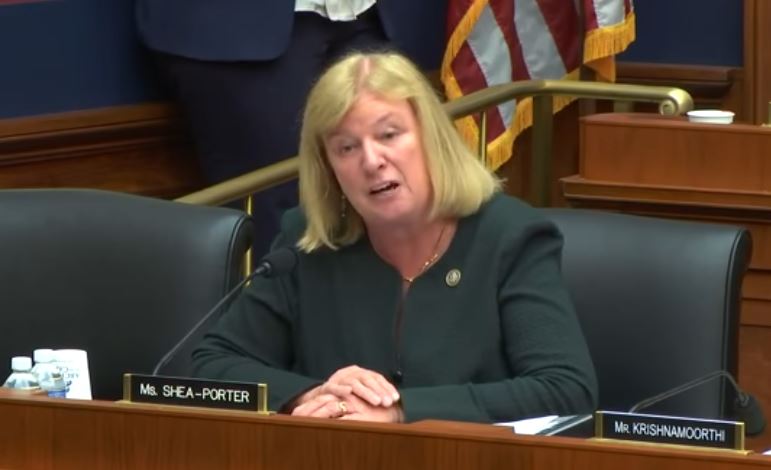WASHINGTON, DC – Congresswoman Carol Shea-Porter (NH-01) yesterday co-introduced the Equality Act of 2017 along with more than 190 co-sponsors in the U.S. House of Representatives.
“In 2017, nobody should face discrimination and bigotry because of who they are and who they love,” said Shea-Porter. “I’m proud to co-introduce the Equality Act of 2017, which would finally ensure that federal civil rights protections cover LGBTQ Americans.”
Despite significant advances, LGBTQ people across the country remain vulnerable to discrimination and too often have little recourse. With the advent of nationwide marriage equality, in many states, same-sex couples have the right to marry but have no explicit non-discrimination protections. In most states, this means that a same-sex couple could legally marry one day and risk being fired from their jobs or evicted from their apartment – simply because of who they are.
The Equality Act ensures that the same protections already extended to other protected classes are equally available to LGBTQ Americans. It amends existing federal civil rights laws to explicitly prohibit discrimination on the basis of sexual orientation and gender identity in education, employment, housing, credit, Federal jury service, public accommodations, and the use of Federal funds.
In some of these areas, federal law prohibiting sex discrimination has already been properly interpreted by federal courts and administrative agencies to include discrimination on the basis of sexual orientation or gender identity. The Equality Act affirms that understanding of existing law and makes the prohibition against discrimination on the basis of sexual orientation or gender identity explicit, in order to provide greater clarity to members of the public, employers, schools, businesses and other affected parties. In areas where sex discrimination is not already prohibited, the bill amends existing law to bar discrimination on the basis of sex as well as sexual orientation and gender identity.
